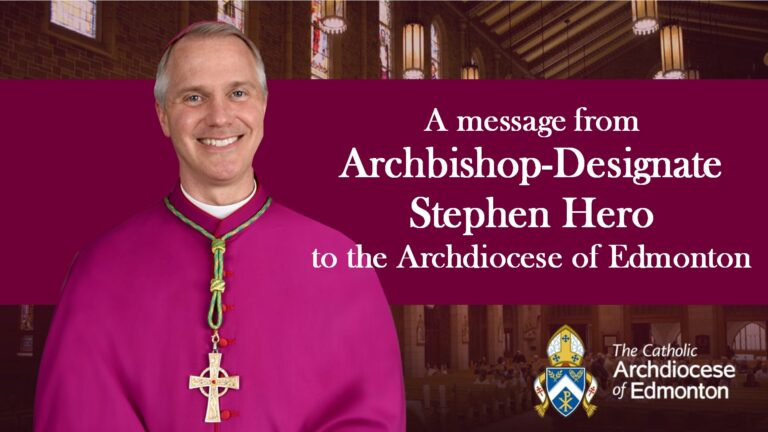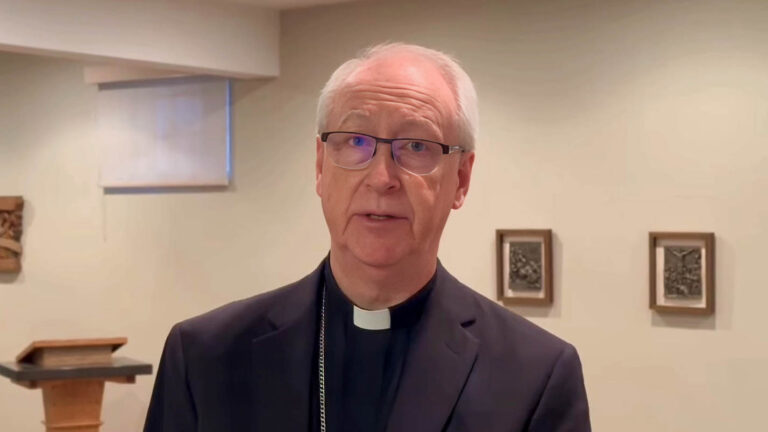[1John 3:7-10; Psalm 98; John 1:35-42]
Since the death of Pope Benedict XVI last Saturday, Dec. 31, 2022, tributes to the late Pontiff have been offered around the world. Among them is the very common refrain extolling Benedict as an outstanding teacher of the faith. This is undoubtedly true. Gifted with a towering intellect, he has been widely and rightly recognized as one of the greatest thinkers in modern times, and certainly foremost among the theologians of the Church. Meditation upon his many writings will be of great profit to the People of God for generations to come.
While I, like countless others, have benefitted from the depth and clarity of thought conveyed in his theological publications, what has touched me most deeply and guided my growth in faith have been his encyclical letters, homilies and catecheses offered during his reign as Successor of Saint Peter. In them I have always been astonished at his penetrating insight into the Word of God and his ability to draw out and apply its deepest meaning to the everyday life of a disciple of Jesus Christ.
A case in point is his treatment of the biblical text given for this mass from the Gospel of Saint John. It was the focus of his reflections during the Wednesday General Audience of October 4th, 2006. As we ponder his explanation, let us in this way allow Pope Benedict to speak to us on this night, when we honour his memory and thank God for the gift he has been for both the Church and world.
Pope Benedict first draws our attention to the dialogue between Philp and Nathanael. He observes that the latter’s rather prejudiced question, “Can anything good come out of Nazareth,” underscores the surprise that usually accompanies the actions of God, who is always sovereignly free in relation to humanity’s limited expectations. Philip’s invitation to Nathanael, “Come and see,” reflects the truth that the life of the believer, while necessarily assisted by the witness of others, begins from and is sustained by personal encounter with the Lord Jesus Christ.
The Holy Father then observes that a window opens onto the dynamics of that personal encounter as the text moves to the dialogue between Nathanael and Jesus himself. Jesus declares Nathanael to be an Israelite without guile, and Nathanael naturally wonders how Jesus would know him. The Lord offers the simple reply, “I saw you under the fig tree,” to which Nathanael responds – astonishingly – with the act of faith: “You are the Son of God! You are the King of Israel!” Pope Benedict sees encapsulated in this puzzling dialogue the deeply interior movement of grace that awakens the soul to the truth of Jesus Christ and transforms one into a disciple. He puts it this way: “We do not know what had happened under this fig tree. It is obvious that it had to do with a decisive moment in Nathanael\’s life. His heart is moved by Jesus\’ words, he feels understood and he understands: ‘This man knows everything about me, he knows and is familiar with the road of life; I can truly trust this man’. And so, he answers with a clear and beautiful confession of faith…. In this confession is conveyed a first important step in the journey of attachment to Jesus.”
Let’s ponder a moment that last phrase: “the journey of attachment to Jesus”. That captures beautifully the nature of the Christian life. By faith we attach ourselves to the person of Jesus Christ, in whom we recognize God’s self-revelation to be fully manifest. That act of faith launches us upon a journey of ever deeper attachment to Jesus, an itinerary along which we die continually to ourselves and surrender increasingly, in obedience and love, to the Word of God and the movement of His grace in our hearts.
In his own life, Pope Benedict exemplified this journey of attachment to the Lord Jesus. Through the many ways he served the Church – priest, theologian, Bishop, Cardinal, and Pope – Joseph Ratzinger lived as a disciple attached by love to the Incarnate Son of God and unique Saviour of the world. He continuously expressed that love by laying down his life to serve the Lord’s call, as St. John, in the text of the first reading, says every Christian must do.
This brings the words and example of Pope Benedict XVI home to each of us. How would I describe my own “journey of attachment” to the Lord? How have my expectations of God been upended by God’s surprising interventions in my life? Do I rely solely on the testimony of others for my knowledge of Christ, or have I come to know the Lord personally? What are the unholy attachments of which I must let go in order to be more fully attached to Jesus and obedient to his Word?
We now turn our hearts to the Liturgy of the Eucharist. The late Pope constantly taught that the single greatest instance of encounter with the living God is the Sacred Liturgy, where heaven and earth unite in Christ in one single chorus of praise and thanksgiving to the Father. As tonight we offer this Holy Mass for the repose of the soul of our beloved former Pontiff, let us pray, too, that this encounter will transform our lives anew and strengthen our unity in the confession of faith that Jesus Christ is the living Son of God and Saviour of the world.
Most Reverend Richard W. Smith
St. Joseph’s Basilica
January 4th, 2023



